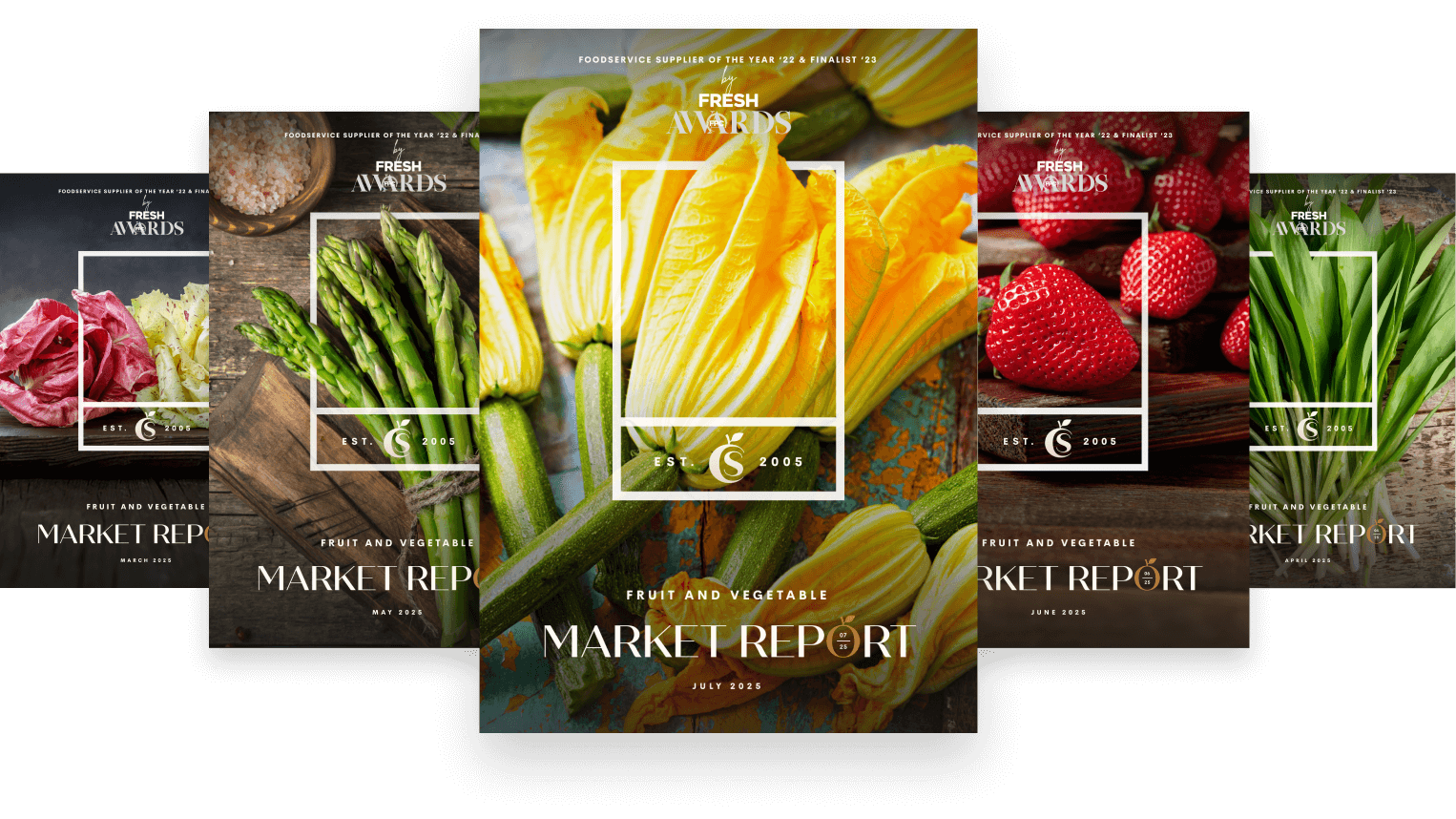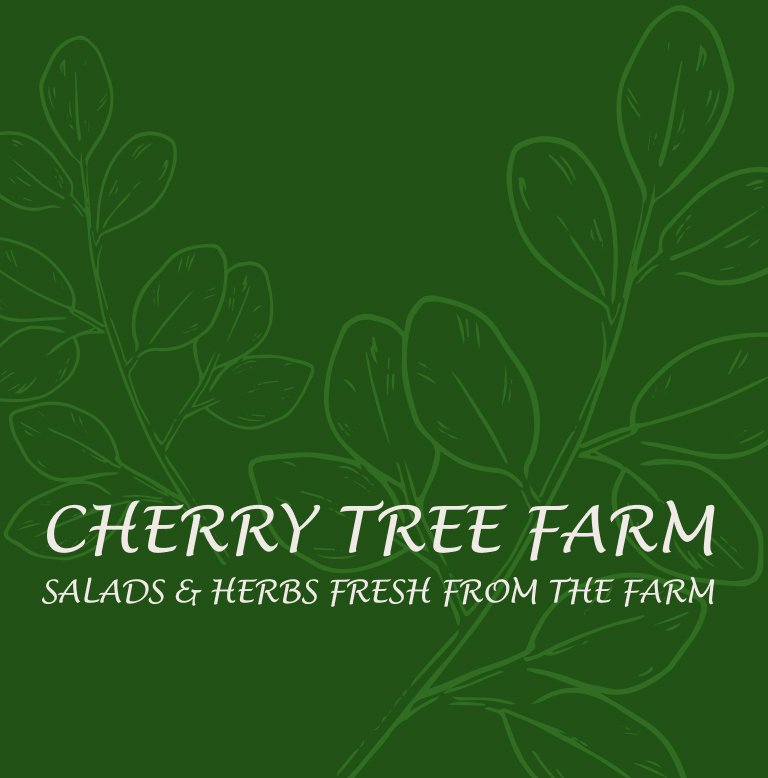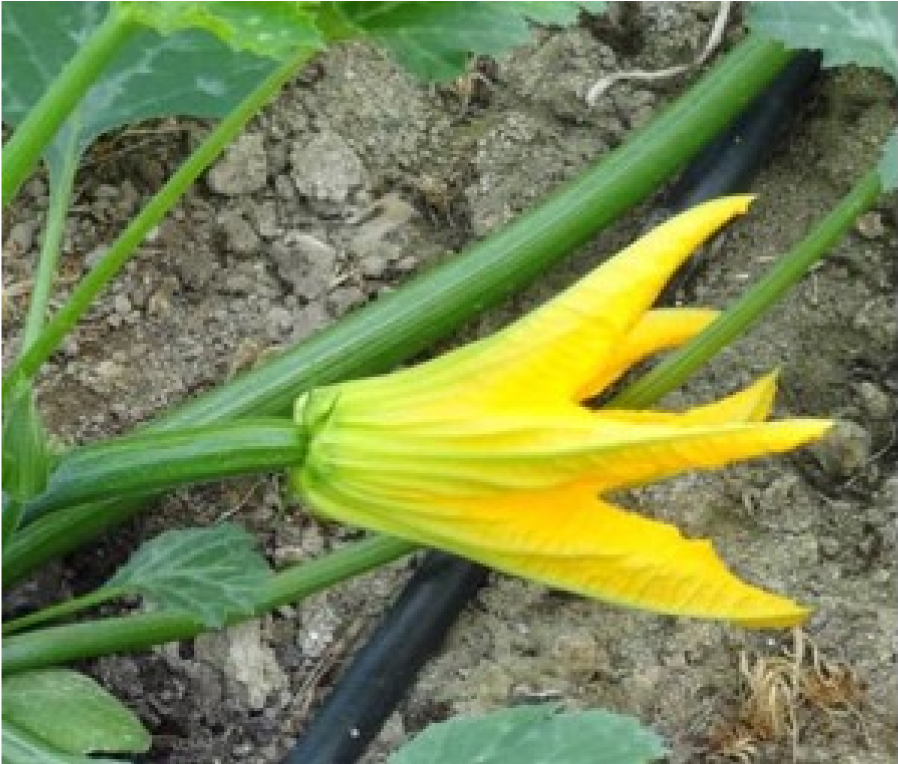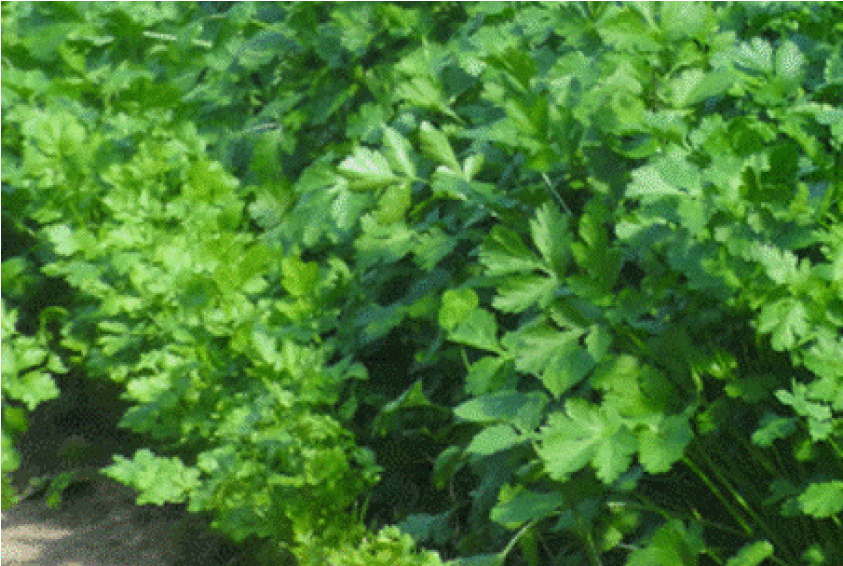
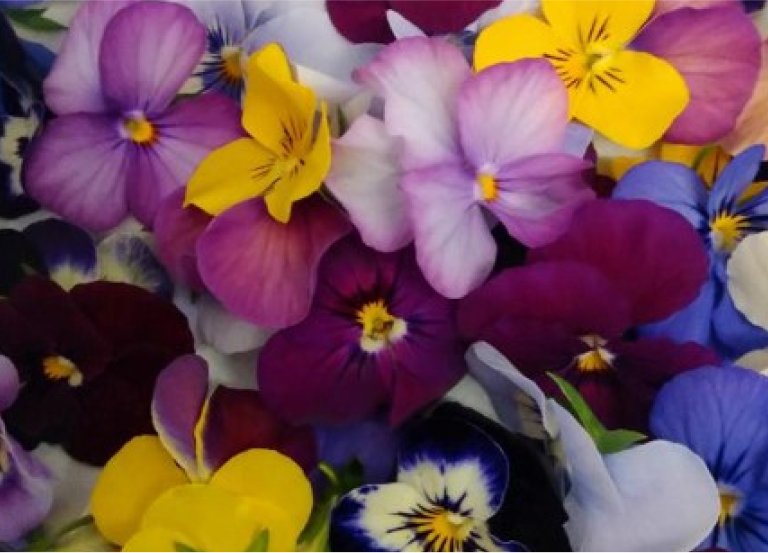
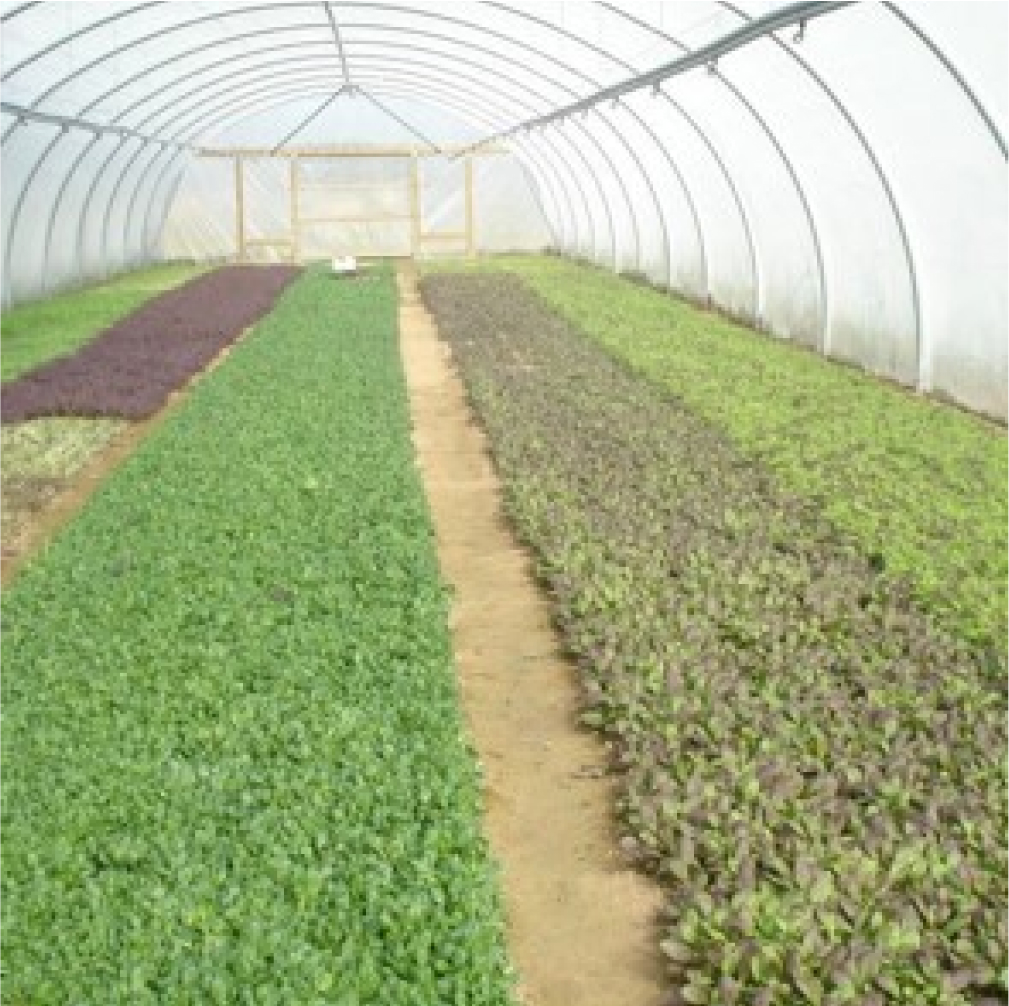
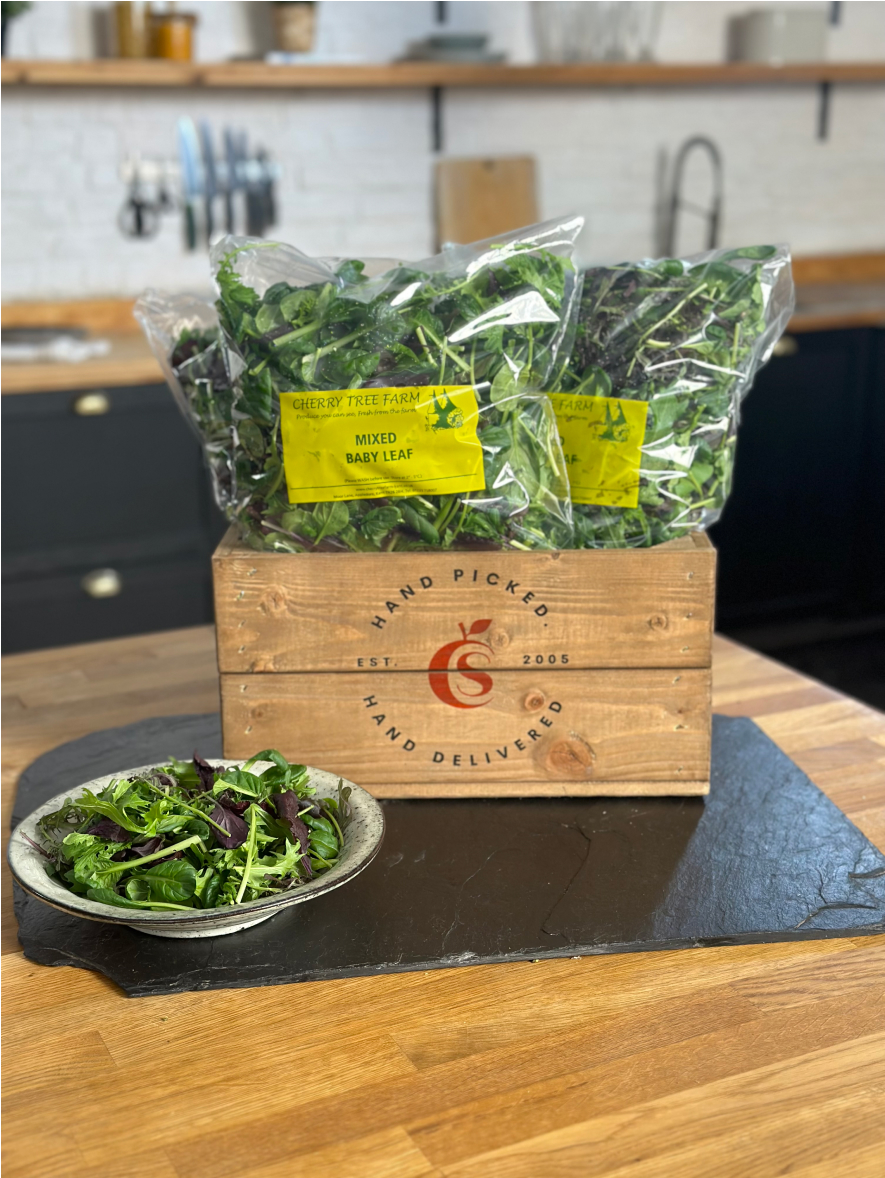
Cherry Tree Farm
Cherry Tree Farm is a specialist salad and herb grower based in Kent. From March to December, they supply baby leaf, coriander, and courgette and edible flowers to London’s top restaurants and chefs. Their popular baby leaf is available individually or mixed, cut to order and delivered overnight.
County Supplies Founder & MD, Robert Hurren interviews owner, Tina Barratt and lead farmer, James Perkins on the farm’s different picking seasons, the impact of the current climate and their favourite time of year on the farm.
Tina, what inspired you to buy Cherry Tree Farm?
Tina: I bought the Farm in 2006. James was already growing produce for the previous owner and had been here since 2000.
James: I was a dairy farmer for over 20 years but in the early 2000’s the market for dairy farming collapsed. So, I sold my cows and started growing salad for a chap who lived in a neighbouring village. He wanted to retire and suggested I took on some of his tunnels – and that’s where it started almost 25 years ago.
Tina: I started working for the previous farm owner and I instantly loved it. I learned a lot – very quickly! – about the different herbs and varieties, and this is how I met James. He used to grow baby leaf for me, and, after a while, it was a natural progression for us to amalgamate the two businesses.
You mention on your website seeking market feedback, especially from chefs, as to what to grow?
Tina: In the beginning, I would send produce off to a selection of top chefs and ask them for their feedback on the quality and flavour. This helped to guide us in the right direction of what chefs were looking for – a good quality leaf that is flavoursome and yet aesthetically pleasing…because we all eat with our eyes!
How do you grow the different salads & herbs? And how do you manage the different picking seasons?
James: We’ve got a total of 20 tunnels and plant two tunnels of baby leaf every week. The seeds aren’t mixed. So, there’ll be tatsoi and mizuna, say a bed of each, in the tunnel. We water the seeds with fresh mains water and after approximately 18 – 20 days they’re ready to be harvested together.
But you can’t follow baby leaf with another baby leaf crop because they’re a brassica, and brassicas don’t like following one another. You’ve got to have a break crop in between otherwise they just won’t work. So, we then plant a crop of coriander, and we grow coriander root which takes around a month to grow.
After which, we plant the baby leaf again and it grows perfectly. We are constantly rotating the different leaves with those breakers across our 20 tunnels.
Tina: In the summer months, we also grow courgette en fleur, which has received great feedback from our chefs. They’re now a staple of our summer crop along with the edible flowers – violas, borage, pansies, panolas, calendula and chive blossom.
Our produce is harvested, packed and delivered on the same day. We want everything as fresh as possible so we don’t store anything on site and, to allow the produce to last longer, we don’t use chemicals or preservatives either.
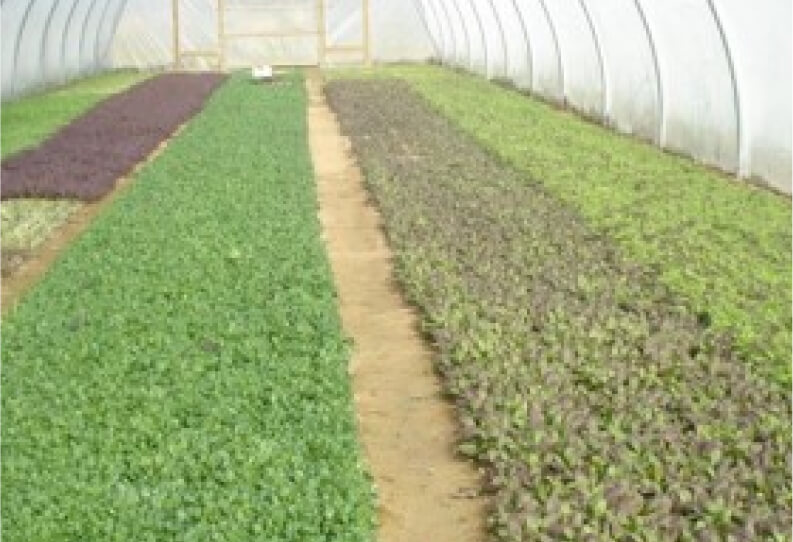
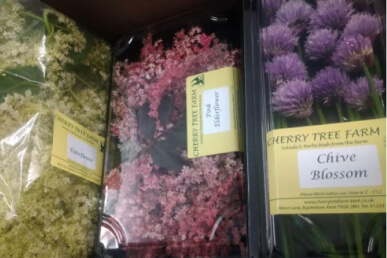
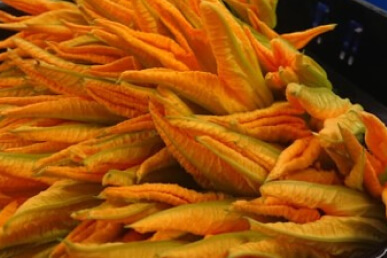
How many different types of varieties of leaves and herbs do you grow at Cherry Tree Farm?
James: The majority of our yield is baby leaf. There’s Mizuna, Tatsoi, Wasabina, Red Carpet Mustard and Red Lace Mustard and Cress. And there’s the coriander too.
Tina: The herbs are a sideline. We used to have a huge variety from pineapple mint and mentha to chocolate mint and mint tips. But as time has progressed, we’ve focused on the produce we can grow in greater volume. So, now, the only herb we grow in large quantities is coriander.
James: Yes, our main produce is baby leaf, coriander, courgette flowers, rainbow chard and edible flowers – with some squashes in the winter too.
Is the changing climate impacting how you grow?
James: The main challenge for us is lack of daylight, especially in the spring and at the start of the season. Without ample daylight, the crop doesn’t grow well. It can really slow the crop down. And if it’s been a wet and cloudy start to the season, this can have a negative impact too.
Tina: The impact can also be felt across the summer months. When it gets incredibly hot, we need more ventilation in the tunnels and summer downpours can damage the crop, especially the edible flowers and courgettes. We are always looking for new ways to protect the crops.
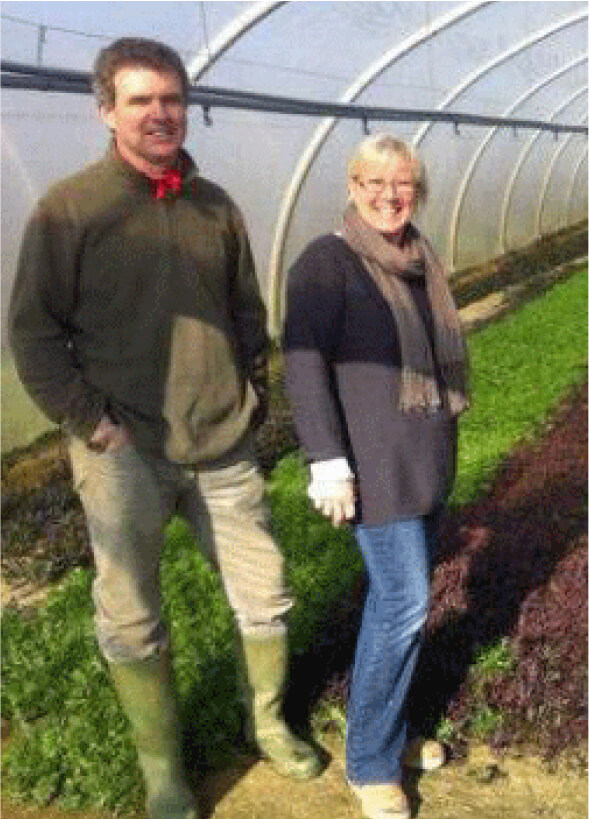
What are the challenges of running a farm?
James: The main challenge is factoring against nature. Unfortunately, we’re on clay soil which can be hard to work. If it’s outside and it gets wet, the wind can gradually blow it dry. However, in a polytunnel, the soil can be baked hard. So, when you’re trying to cultivate it, it produces hard lumps and, because it’s clay, it also sticks together which is a constant challenge.
Do you work with any other markets or supermarkets?
James: No, we don’t produce the volume for supermarkets. We supply New Covent Garden Market and one or two local shops, and that’s it.
Tina: And we like it that way. We like our farm and the niche produce we supply. Plus, everybody likes coming to work which, I think, says an awful lot. Some of our team have worked here for over 20 years – they enjoy the work, the environment – and it’s without the stress of growing the volume of produce required for mainstream supermarkets.
And finally, what’s your favourite time of year on the farm?
James: Mine’s Christmas time. The season is finished and you’re starting to prepare for the next one. Whether it’s irrigation repairs or general maintenance around the farm, you want to make the next season better than the last. I look forward to getting organised for the spring and summer months. September is nice too when the weather starts to cool, especially if it’s been a hot summer in the tunnels.
Tina: I like all stages of it, but I particularly like the spring because it marks the start of the new season. Seeing everything come together, the crops growing after the winter planting – it’s always a favourite time of year of mine.
Introducing the new County Supplies grower series:
At County Supplies, we source the very best seasonal produce from leading British growers.
From crunchy apples in spring and baby leaf during the summer to selecting the finest autumn squashes and handpicking festive Brussel sprouts – we’re proud to support our amazing growers.
Through our new series of grower interviews, we are sharing their stories and passion for the best seasonal produce. From succulent strawberries to the perfect asparagus spears, learn how they maximise both flavour and quality, and are working towards building a more sustainable farming future.
